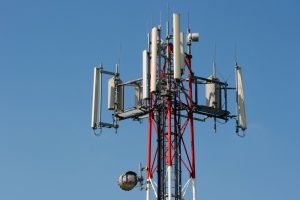Study: 4G delays cost UK businesses £730m a year

The four-year delay in the rollout of 4G is costing British businesses at least £732m a year, according to figures from policy organisation Open Digital.

A report by Open Digital claims the ongoing delays to 4G rollout is costing industry £730m a year.
The UK lags behind countries around the world in introducing the '4G' mobile broadband technology LTE. That delay is responsible for more than 37 million wasted hours of business time each year, Open Digital said in a report (PDF) published on Tuesday.
This figure was based on the difference between the time it takes to download documents over 2G and 3G technology and the time it takes to do the same over 4G, as well as the estimated usage of mobile broadband by businesses. Based on an average cost of labour of £19.60 per hour, the total savings that could come with a full 4G deployment would be higher than £732m per year, Open Digital said.
"We acknowledge that such a change will not happen overnight, with Ofcom proposing a target date of 2017 to reach the 95-percent 4G coverage target. However, our aim is to estimate the cost of delays, or, looking at it another way, the saving to the UK economy if 4G rollout could be achieved earlier," the report's authors wrote.
Operators were supposed to have bought their 4G licences, which will give them access to the 2.6GHz and 800MHz spectrum bands, in September 2008. With that auction now set for mid-2012, and with the possibility of further delays, the UK is likely to get 4G about four years behind schedule.
Meanwhile, LTE deployments are steaming ahead in the US, Sweden, Germany, South Korea, Australia, Japan, Russia, Sri Lanka, Saudi Arabia, the United Arab Emirates, Norway, Spain, Kenya and Canada, among other countries.
4G devices are also becoming common around the world, where people can use LTE-enabled versions of popular smartphones and tablets that offer real-world average download speeds of around 6.6Mbps, rather than the 2Mbps average offered by 3G devices.
Impact on the cloud
Wasted time is not the only downside to the UK's delayed 4G roll-out. As Open Digital pointed out, business is increasingly done in the cloud, and 3G is frequently not up to the task of supporting cloud computing.
"Delivering the cloud through mobile services will require faster access speeds. This can only be achieved in the long term by the deployment of 4G and LTE services," the authors wrote. "Unambitious delivery targets — spanning four years from 2013 to 2017 before 4G coverage will match today's 2G network — will limit the ability to access, use and innovate around cloud services and even prevent users and business from getting near a cloud offering."
However, the group did not factor in potential losses from poor cloud take-up into its estimates, as these are hard to quantify. It also did not include the benefits that might be gained by giving mobile broadband coverage to the eight percent of UK residents that do not have it now, as 4G is expected to do.
"The best way forward for the UK now to catch up with the rest of the 4G-capable nations is to go ahead with the mobile spectrum auction as soon as possible," Open Digital wrote. "Any delay will not only cost businesses money in wasted time, but will risk a loss of income if we start to lose ground to other nations because UK businesses aren't able to deploy the mobile technology and working practices to compete with other nations."
Open Digital's concerns are shared by culture secretary Jeremy Hunt, who pleaded with operators last month to avoid delaying the auction process any further. Much of the four-year delay has been the result of operator litigation that was closely tied in with other issues such as that of spectrum refarming.
Get the latest technology news and analysis, blogs and reviews delivered directly to your inbox with ZDNet UK's newsletters.